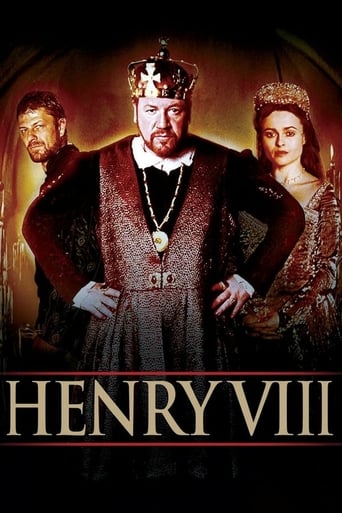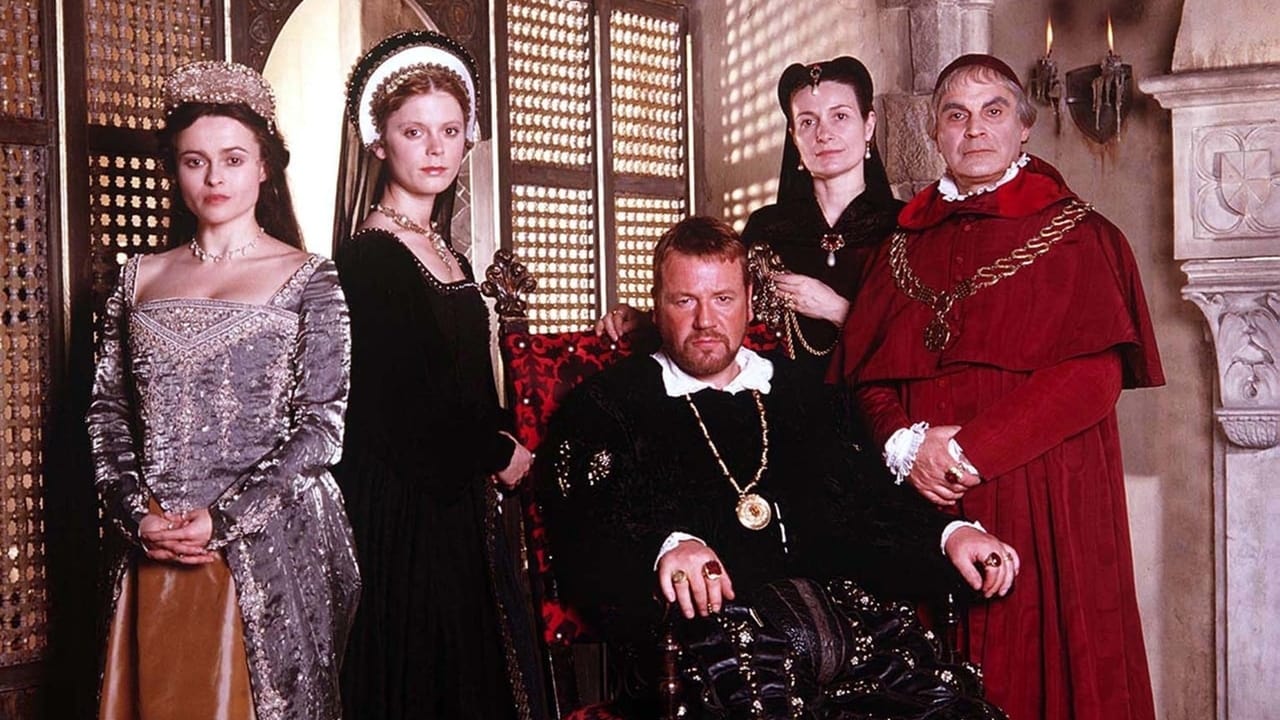aceellaway2010
Fatally flawed by miscasting of Title Character. Ray Winstone, may be very good playing an Eastender drunk. But Henry Vlll for all his many flaws, was a well educated, well read good looking King. This henry comes across as a small time, crude, cockney thug. I imagine that anyone who would watch this , would do so because they have some knowledge of history. I despise Henry Vlll , he murdered wives, friends, anyone who got in his way, and he did so with the power of an absolute monarch. But this miscasting is so bad that it is offensive, and one wonders who chose Winstone to play the character, whoever it was they should suffer the same fate of many of Henry's victims.
Benoît A. Racine (benoit-3)
The facts are XVIth Century but the style is clearly XXIst Century. It can be argued that everything in this miniseries really happened (except for a few fictional subplots) but it is unarguable that the end result is extremely vulgar, from the Cockney accent and body language of the king to the soap-opera techniques of the editing style. In this universe, a birth cannot happen without the camera projecting between the legs of the mother and blood spurting everywhere, courtesans cannot be disgraced without a Nazi style arrest followed by the cries of the tortured. History is a series of excuses for showing body fluids and not mentioning any important or relevant social issues other than sex and violence. It is entertainment for the readers of Rupert Murdoch's tabloids (Mr. Murdoch also owns Granada Television). It follows in the euro-trash tradition of revisionist history as spectacular blood-sport of such recent period films as "Elizabeth", "Le Roi Danse", "Vatel", "La Reine Margot", "L'Affaire du Collier", etc., etc., etc. Ad nauseam... It also made possible a piece of egregious dung like "Gunpowder, Treason & Plot" (2004).
wgkyle
There is no doubt whatsoever that the producers of this work have taken extreme liberties in the telling of the story, and employed a few outright falsehoods. Nevertheless, if one is able to leave behind expectations for a true-to-the-books account, it is a fun show to watch.Bad Things: Some of the costumes were not great, but there were also some that were spot-on for the period; the armour was atrocious, and the jousting pretty hokey (coming from someone who's done it before). And I certainly don't think Henry was as pliable and weak-willed as he is made out to be. The dissolution of the monasteries wasn't nearly so bloody and violent (another reviewer correctly described it as looking like a scene out of a viking rape-and-pillage film).Good Things: I think the acting was superb, especially from the supporting cast: Cranmer, Cromwell, Wolsey, Gardiner, Robert Aske. And speaking of Aske, for all the inaccuracies in the movie it is the only one that has given the Pilgrimage of Grace the incredibly significant role it actually played during Henry's reign; the details of the Pilgrimage are far too complicated to go into here, but even though much of the details were abbreviated or changed, the very fact that the producers gave a nod to this important event went a long way with me. Suffice to say that Henry's rule could have been swamped and swept away by the Pilgrimage, something Henry and his contemporaries were well aware of and was a consideration which guided their domestic policies for many years afterwards. The movie was limited by the length it could be to go into details concerning the 36-year reign of the monarch, and understandably had to 'pick its battles'. As such, it did leave a lot out about the religious crisis and split with Rome, as well as the effects of religious turmoil on the political situation at home and abroad. If they'd had another 4 hours, they could have covered more things to a greater extent, but most folks have trouble sitting through a ninety-minute movie.Overall, a worth watching but don't expect a history lesson. Besides, we need to worry about anyone who DOES expect a history lesson from a movie...
ejj1955
I second most of the comments already made about the historical inaccuracy of this program, but want to add yet another quibble: the scenes that purport to show the dissolution of the monasteries. What a bunch of hooey! I thought I was watching a scene from some movie of the Vikings raiding and pillaging the English coast. What actually happened was that inspectors were sent around and anything of value was methodically stripped and either taken for the royal treasury or sold; the monasteries were then pulled down, bells were melted, etc.; the monks and nuns were given pensions. It's true that servants were turned off without work, causing hardship; it's also true that those who were especially obdurate were tried and executed, but the slashing swords and burning monks fleeing from buildings were complete inventions of the filmmakers. I just don't see the point--fiction is the name for this (not even historical fiction--just fiction).


 AD
AD


